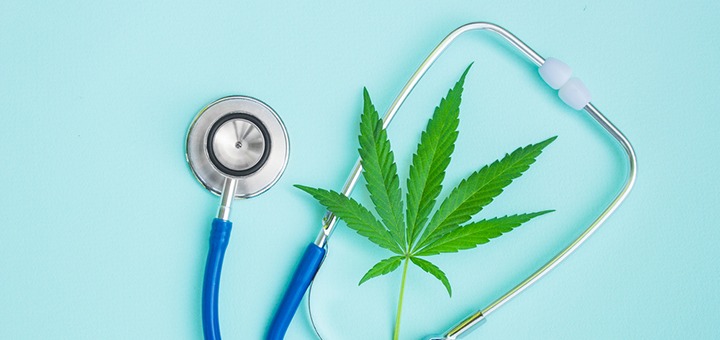
- CBD Health
- by Dean Pagliaro
Understanding the way cannabis can be a difficult subject to wrap your head around. As we keep our eyes peeled for new discoveries in the field, one particular cannabinoid seems to be grabbing most of the attention for itself. From a mood enhancer to stress-relief, CBD seems never-ending. What’s even more fascinating is the harmless, non-euphoric way in which CBD interacts with our brains and bodies.
Did you know we all produce cannabinoids naturally? These compounds (also called endocannabinoids) are involved in regulating everything from our moods to vital conditions. They travel and work through a designated network in our bodies: the endocannabinoid system (ECS).
Your body’s endo system of branched cannabinoid receptors that interact with cannabinoids (both autogenic and plant-derived) to influence physiological processes through chemical stimuli. It all sounds very complicated, but think about it this way: your memory, mood, appetite, pain management, and other important functions are regulated by the ECS. When one of these functions is out of balance, your body naturally synthesizes the cannabinoids it needs to retrieve homeostasis.
The problem arises when your body struggles to produce enough cannabinoids, a condition called clinical endocannabinoid deficiency. In these cases, researchers have found that supplementation with naturally occurring cannabinoids can help improve the condition. Of the more than 100 plant cannabinoids, CBD (cannabidiol), second only to THC in abundance, has attracted the most attention for its medical applications.
You may be wondering why CBD doesn’t get its users high. While THC binds directly to the body’s cannabinoid receptors, its naturally produced molecules, CBD has a different way of encouraging your system to supplement its own production.
These receptors are important parts of your ECS, with CB1 found mostly in your brain (central nervous system), but also in your lungs, kidneys, and liver. CB2 is expressed mostly in your body and is linked to the prevention of oxidative damage. Together, these receptors regulate different bodily processes, including moods, metabolism, and immune functions, among many others. When you consume CBD, you are supporting the receptors’ activity and your body’s naturally occurring system.
Stress is completely natural. In fact, a moderate amount of stress is healthy; it keeps us safe and aware of hazards. When you are facing a dangerous situation, like crossing a busy road, your body secretes adrenaline and cortisol to help you avoid dangers. This “fight or flight” instinct is instilled in all humans and animals. It’s a physiological response that plays an integral role in our bodies.
It has to do a lot with how we process our surroundings and how they influence our emotions. Sometimes, the causes of stress become too overwhelming and negatively affect our health. It could be anything from fear of work, bankruptcy, social anxiety, etc. If you are planning on using CBD to improve your mood and take the edge off, it’s best to start with a small amount and work your way up until you find the level that works for you. CBD & Hemp products come in different strengths and are available in a range of formats. Tinctures and concentrates containing CBD-rich hemp oil, for example, are some of the strongest forms and are easily measurable and quick to start working.
Think of CBD as THC’s responsible older brother—it comes without the psychoactive properties and doesn’t cause you to get high. Recently, CBD appears to have seized researchers’ focus for its medical applications. Its potential roles range from a stress-relief supplement to a valuable neuroprotective agent, and only time will tell how effective this cannabinoid can truly be in helping people live a happier, more stress-free life.

